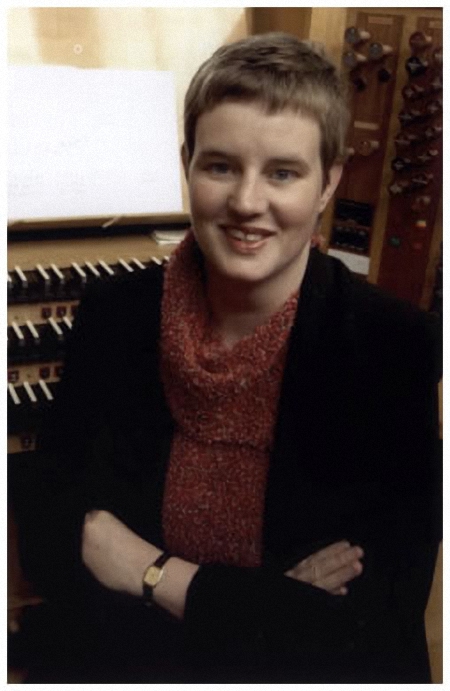
Katherine Dienes-Williams was born and educated in Wellington, New Zealand, and was Organ Scholar and then Assistant Organist at Wellington Cathedral before she came to England to take up the position of Organ Scholar at Winchester Cathedral and Assistant Organist at Winchester College. After a spell at the Metropolitan Cathedral of Liverpool, and then as Assistant Organist and Director of the Cathedral Girl’s Choir at Norwich Cathedral, she was appointed Organist and Master of the Choristers at Guildford Cathedral in January 2008. Her experience of choral conducting at the highest level means she is in demand as a choral workshop leader in the UK and the US – in July this year she will direct the RSCM Montréal course summer school near Boston, USA, and in January 2016 she will direct the combined RSCM summer school of Australia and New Zealand in Canberra, Australia. As you can imagine she has given recitals around the world, including performing as organ soloist with UK orchestras the Royal Liverpool Philharmonic Orchestra, the Hallé, the City of London Sinfonia and the Royal Philharmonic Orchestra. She is also active as a composer, having received several commissions both in the UK, the USA and New Zealand. I’m looking forward to meeting Katherine next Saturday, when she plays as part of the recital series at Bloomsbury Central Baptist Church in London. Details at the bottom of the page. In the meantime here are Katherine’s answers to my five questions:
What piece of music are you studying at the moment, and why?
At the moment, I have taken out the Saint-Saëns ‘Fantasie’ in E flat major to study, as I think it is a delightful, exuberant piece which I ought to add to my repertoire. I think it has the potential to demonstrate an organ’s colours well, and that audiences will enjoy hearing it (once I have learned it!)
What has been your best experience as an organist?
It’s very hard to pick just one, as I would choose so many! – in the sense that I have played with orchestras, as solo recitalist and accompanied liturgical worship. Amongst the many experiences would be having the privilege of playing the Poulenc Organ Concerto with orchestra twice (the Royal Liverpool Philharmonic Orchestra under the baton of the late Sir Richard Hickox) and with the City of London Sinfonia (under the baton of Stephen Layton), as well as performing an arrangement of the Sinfonia from Cantata 29 with the Royal Philharmonic Orchestra and John Rutter.
As organ recitalist, I have played in many different countries, and my fondest memories are of instruments I have enjoyed the most – the instrument at St. Katharinen’s Church in Braunschweig, Germany, the romantic German organ in Malchin, Germany, the organ of the Grote Kerk in Harlingen, the Netherlands – but these are but a few!
As liturgical organist, playing live on the radio and on television is at once nerve-wracking and exhilarating. Accompanying world-class choirs in our British Cathedrals is an honour and a privilege, and there have been countless magical moments that I have been privileged to be part of.
What has been your worse experience as an organist?
Checking the general settings just before I was to perform the Poulenc organ concerto with the Royal Liverpool Philharmonic Orchestra, only to find that they had all been changed. Fortunately, there was just time enough to re-set them.
What was the best piece of advice given to you by an organ teacher? And who was it?
David Hill once told me that I was playing a certain piece extremely well, but there wasn’t enough of ‘me’ in the performance. That gave me the freedom and encouragement to enjoy my playing so much more – and as for the great Dame Gillian Weir, she once taught me how to attack the starts of phrases at the keyboard – suffice it to say it involved one’s nose starting close to the keys and a dramatic backwards physical movement – but we’d better leave it there! Incidentally, Dame Gillian is without a doubt a consummate musician first and foremost but in my opinion she is also an outstanding teacher, and I am grateful to have had that benefit.
What would be your own best piece of advice for student organists?
Practice, practice and practice till the music is engrained in your very being – and leave nothing to chance – not one piece of fingering, nor registration. Know what you want to say with each piece you encounter and think outwardly about how to express the music through colour and articulation – relate your pieces to their greater musical context and let your music- making be informed in this way.
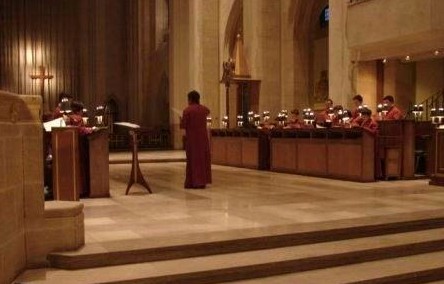
Here are details of Katherine’s recital on Saturday:
BLOOMSBURY CENTRAL BAPTIST CHURCH
235 Shaftesbury Avenue, London WC2 8EP
Saturday 31st May at 4pm
Free Admission – Collection – Buffet
Herbert Howells (1892-1983) Rhapsody No 3
Guillaume-Gabriel Nivers (1632-1714) Kyrie
J.S. Bach (1685-1750) Prelude and Fugue in E flat (St Anne)
William Albright (1944-1998) Sweet sixteenths
Calvin Hampton (1938-1984) At the Ballet
Edward Elgar (1857-1934) Sonata in G (1st movt)
Guy Bovet (b. 1942) Salamanca

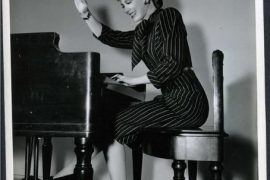
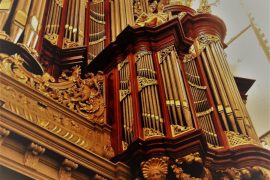
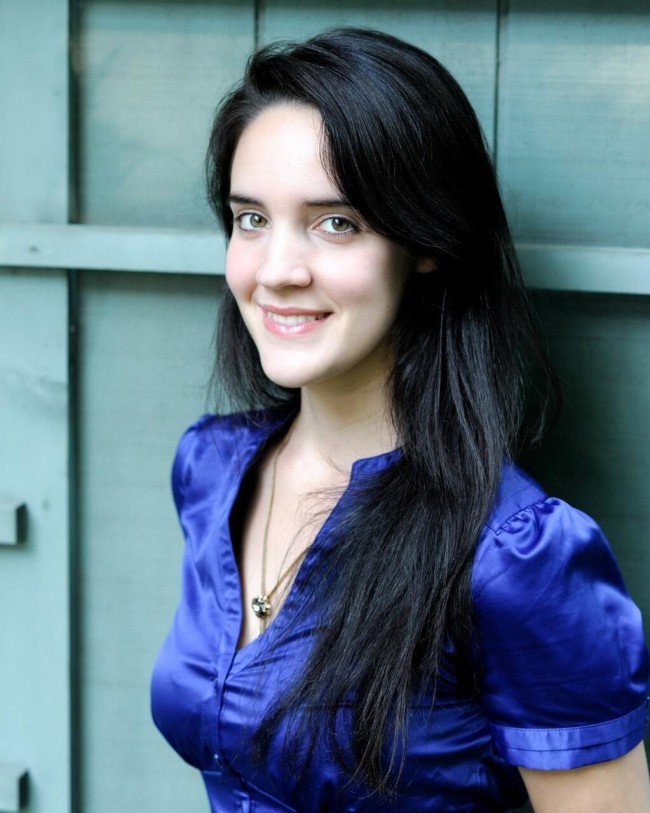
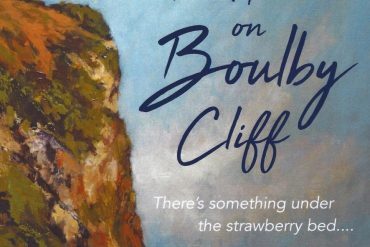
In her career section the article does not mention her pre Guildford Cathedral time as Director of Music at St Mary’s Collegiate Church Warwick from 2001 to 2008.
Thanks Peter! – when writing up interviews I find it’s quite a struggle to decide what to keep in, without making the preamble too long. People have such long and interesting careers once you start looking.
We are lucky enough to have the lovely Katherine Dienes-Williams playing for us at the Alton Organ Society on Tuesday 6 February 2018 – really excited to have her with us again! Great interview – thank you.